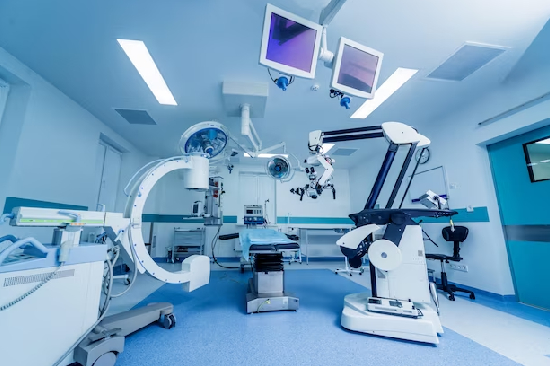- info@healthandfitnessbenefits.com
- +(417) 889-1088
Neurosurgery is a highly specialized area of medicine that focuses on identifying and treating nerve system problems. The provision of sophisticated care for ailments involving the brain, spinal cord, and peripheral nerves depends heavily on neurosurgery services. The importance of neurosurgical services in Health and Fitness Benefits, the broad spectrum of disorders they treat, and the significant influence they make on patients' lives will all be covered in this blog.
Services in neurosurgery are essential to Health and Fitness Benefits because they provide cutting-edge diagnostic and therapeutic options for disorders affecting the neurological system. Neurosurgery services' specialized knowledge, state-of-the-art equipment, and interdisciplinary approach enhance patient outcomes and people's and communities' quality of life. The discipline is still developing, offering patients suffering from the most complicated and difficult neurological disorders hope and remedies.

Interventions that can save lives: Neurosurgery frequently deals with illnesses that are life-threatening, such as brain tumors, aneurysms, and traumatic brain injuries, when prompt intervention can save lives.
Nervous System Complexity: Because of the nervous system's extreme complexity, neurosurgery requires specific knowledge to treat a variety of illnesses.
Improved Quality of Life: By reducing symptoms, regaining function, and, in some circumstances, achieving full recovery, neurosurgery can greatly improve patients' quality of life.
Innovation & breakthroughs: As a result of cutting-edge therapy and ongoing technology breakthroughs, neurosurgery continues to help patients.
Comprehensive treatment: To offer comprehensive treatment, neurosurgery services frequently use a multidisciplinary approach and work in conjunction with other medical disciplines.
Improved Results: Patients who receive neurosurgery treatments experience better quality of life, symptom reduction, and survival rates.
Innovation and Research: Neurosurgery is a profession that fosters innovation and research in medical technology and therapeutic approaches
Better movement and Functionality: After neurosurgery, many patients report better movement, sensory function, and cognitive ability.
Community and Family Well-being: Patients who recover from successful neurosurgery procedures can resume productive lives, which benefits families and communities.
Pain reduction: For people with illnesses like persistent back pain or trigeminal neuralgia, neurosurgery can provide both pain reduction and enhanced neurological function.

Brain tumors: Gliomas, meningiomas, and metastatic tumors are just a few of the many types of brain tumors that neurosurgeons may identify and treat.
Vascular Conditions: Aneurysms: The treatment of brain aneurysms to stop bleeding and avoid rupture. Surgery to treat faulty blood arteries in the brain known as arteriovenous malformations (AVMs).
Spinal Disorders: Surgery to alleviate pressure on the spinal cord or nerves is performed in cases with herniated discs. Enlargement of the spinal canal to relieve compression is known as spinal stenosis.
Epilepsy Surgery: Neurosurgeons may conduct epilepsy surgery on individuals with medication-resistant epilepsy to manage their seizures.
Head trauma: The treatment of intracranial pressure and, if required, surgical intervention are all part of treating traumatic brain injuries.
Functional Neurosurgery: Deep brain stimulation (DBS) treatments for movement disorders including Parkinson's disease and essential tremor are examples of functional neurosurgery procedures.